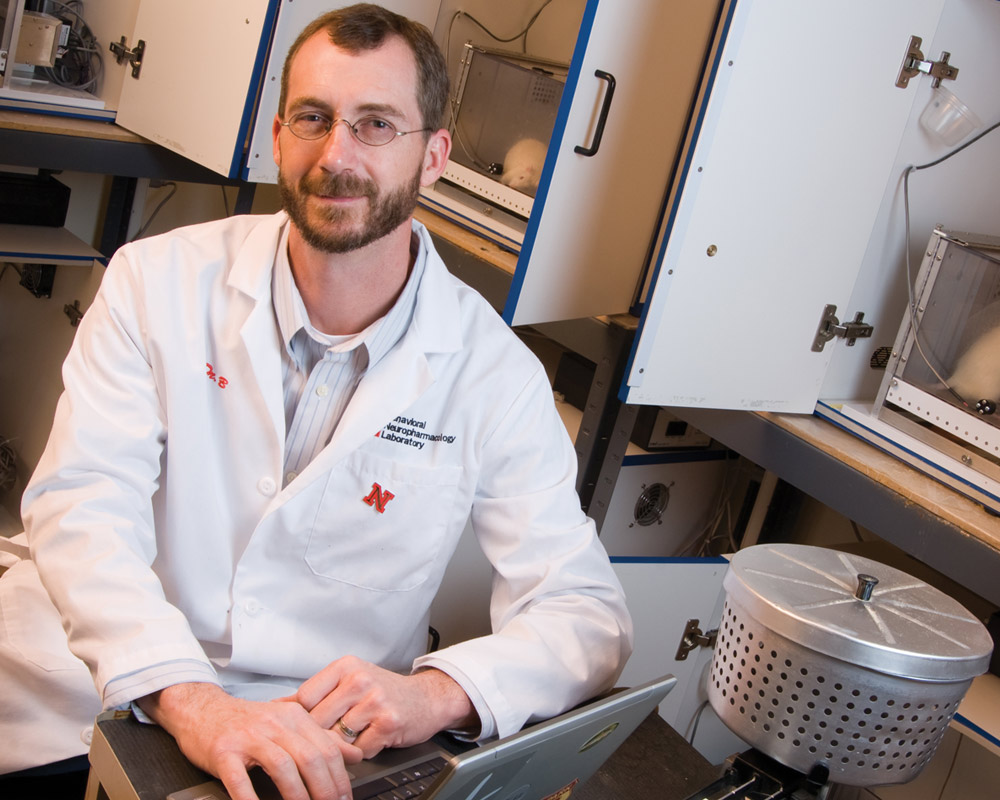Dear Alumni, Students, Colleagues, and Friends,
It is with delight that I present the Spring 2018 edition of the Department of Psychology Newsletter! This past year, the Department underwent its mandatory once-in-seven-years Academic Program Review (APR) to ensure that the Department is fulfilling the University’s goals of excellence. In addition to an external review team visiting the Department and examining all of our current academic programs and their trajectories into the future, a key part of the APR is our own self-study which highlights our views on these issues. One of our core values, expressed in our self-study, is the promotion of diversity and inclusion, which means that our mission of providing excellence in teaching, research, and service can only be accomplished by maintaining an academic community composed of diverse faculty, students, and staff, who are able to explore and convey their expertise in an environment that promotes academic freedom.
To enhance sensitivity and comfort with diversity and multicultural issues, we engaged in a campaign entitled, “One Book One Department,” in which faculty and graduate students engaged in a number of activities in common, including recommended reading and discussions on teaching. During this past year, we also initiated several activities led by the Sarata Diversity Enhancement Committee, including a new “Diversity Brownbag” designed to promote the Department’s diversity research profile, and the “Spotlight on Diversity” in which an emphasis will be placed on illustrating how diversity is essential for excellence in fulfilling our mission. As for the role of academic freedom in promoting diversity, lessons can be learned from the sedition trial that occurred 100 years ago and that involved the Department’s founder, Harry K. Wolfe, in which his academic freedom was challenged after expressing political views that were not aligned with the views of powerful others. We must be vigilant to ensure that academic freedom is not compromised, so that advancements that can accrue only from a diverse search for truth will be realized.
Accordingly, our accomplishments can be directly traced to academic freedom and the promotion of diversity and inclusion. As one outstanding example, this year’s winner of the graduate student David Levine Diversity Enhancement Research Award, Abbey Reimer, is conducting research—highlighted in this newsletter—exploring the conditions that promote men’s sexual objectification of women, and Abbey has noted how such objectification “impedes gender equality and diversity.” Additional examples include the accomplishments of our alumni. In this newsletter, we highlight two alumni, Kyli Rood and Akua Dawes, whose work involves interactions with diverse others. Kyli highlights how her training in psychology led to the development of skills that promote her current work as a Training Coordinator. Pursuing a law degree, Dawes is working this summer in a labor and employment firm in Newark, and she notes how her training in psychology has provided a foundation for understanding the impact that the law has on people’s lives. As highlighted in this newsletter, becoming a member of the Psychology Learning Community is a great way to explore what we offer in training our students to prepare for valuable career opportunities while having fun along the way!
As a testament to our success in fulfilling our mission, the Department continues to grow. We nearly have 1000 undergraduate students who select psychology as their major, and we have over 700 undergraduate psychology minors. We are proud of the fact that our Department has the largest number of majors in the College of Arts and Sciences, and the largest number of faculty in the Department’s history. During this past year, we have had three new faculty join the Department. Kathryn Holland, a faculty member in the Social and Cognitive Program, conducts research around wellbeing as it pertains to sexual violence and health. Ashley Votruba, a faculty member in the Law-Psychology and Social and Cognitive Programs, explores how cognitive biases, that are impacted by culture, impacts legal decision making. Cary Savage, a faculty member in the Clinical and Neuroscience and Behavior Programs, and the new Director of the Center for Brain, Biology, and Behavior, conducts research that focuses on the relationship between brain processes and behaviors that promote health. We are excited with these new faculty joining our Department!
After an illustrious career, Dennis Molfese is retiring this year. We are grateful for Dennis’s many accomplishments, and have been fortunate for his work in the Department and the University including being the founding Director of the Center for Brain, Biology, and Behavior. Dennis will continue being an active scholar while being able to spend more time on other activities which he enjoys.
The excellence of the Department cannot be achieved without the assistance of professional staff. In this year’s newsletter, we highlight the contributions of Melody Scholl-Miller and Eyde Olson, who provide technical and teaching support, respectively. Although their positions are not directly within the Department, they are in constantly contributing their expertise to members of the Department in ways that encourage us to become ever better at what we do. In discussing excellence within the Department, we must include our annual Nebraska Symposium on Motivation, which brings the most renowned national and international scholars to campus to discuss their work. This year, Departmental faculty member Maital Neta has joined forces with political science professor Ingrid Haas to highlight the role that emotion plays in our brain processes, our thoughts, and our behaviors.
Other features in this newsletter highlight recent achievements and awards of faculty and students beyond what is noted above. Of course, this newsletter only provides a glimpse of the important work that is accomplished by the people in our Department. If you’re interested in learning more (e.g., talks, symposia, research) or how you can help, please visit our webpage, like our Facebook page, or follow us on Twitter.

Rick Bevins